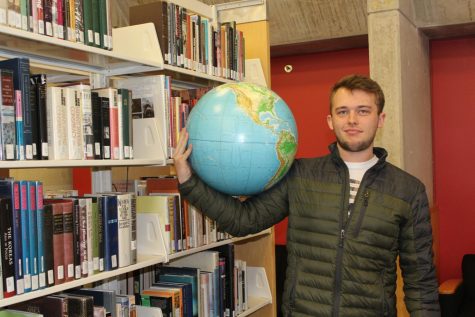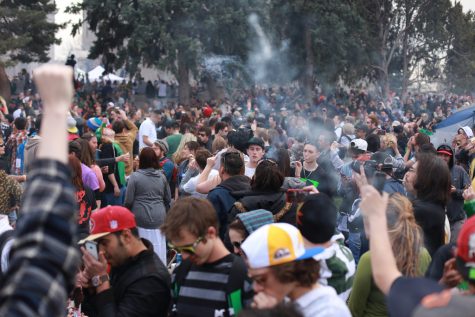Pot Abroad
The wave of State legalization of marijuana has been dramatic for a nation that has some of the toughest drug laws in the world.
The domestic challenges have been well documented, from banking and finance issues to State versus Federal authority.
The US has agreements and treaties abroad that have defined the ‘war on drugs.’
The Single Convention on Narcotics from 1961 has been the basis of international drug policy. It put controls on the cultivation of opium and marijuana for medicinal uses. The Convention on Psychotropic Substances of 1971 and the United Nations Convention Against Illicit Traffic in Narcotic Drugs and Psychotropic Substances of 1988 were agreed that enlarge the scope into psychotropic drugs and give greater regulations on international trafficking.
The US’s Controlled Substances Act of 1970 was largely based on the 1961 treaty, borrowing from the 1961 convention the concept of drug scheduling, which is the act of putting the drugs into scheduled categories based on their negative effects.
The US’s commitment to the international conventions led the US to creatively ensure other nations would also enforce the same level of drug laws. The US government has paid nations to keep restrictive drug laws or threaten them over the international conventions.
Jamaica is renowned for its marijuana culture, as their love of Bob Marley, and their adoption of Rastafarianism give them a certain reputation. That’s why it may surprise some to find that Jamaica had the same tough level of enforcement on marijuana as the US.
Jamaica had exceptions for marijuana in religious ceremonies for Rastafarianism; they only decriminalized marijuana in 2015, with lesser penalties for possession and the beginning of a medical licensing system.
When Jamaica decriminalized they were warned by the US to “have a legal obligation to abide by the terms of three international drug conventions,” said William Brownfield of the Bureau of International Narcotics and Law Enforcement Affairs (INL).
The three treaties have a degree of domestic flexibility, as the treaties deal more with national governmental roles to decrease international trafficking of drugs. The way that a nation might go about that is laid out in the treaties, but they’re more guidelines than rules. There is no enforcement of international agreements, only domestic compliance with the agreements.
The Obama-era memos that kept the Federal government from interfering with the state marijuana laws, recently rescinded by Jeff Sessions, contradicted the international treaties, putting the US in a difficult position that it is holding to see what happens.
Other nations have gone to radical lengths in their drug policies.
Portugal had a major heroin crisis in the 1990’s when 1 in 100 people had a chronic addiction to heroin. In 2001, Portugal implemented a new drug policy: harm reduction. Portugal decriminalized the use of all illicit drugs, lowered penalties for possession of personal use, increased the spending for drug treatment, and used police to target sellers and distributors. The number of overdoses, HIV cases, and drug-related crime fell sharply. These policies arguably helped the nation come out of a deep crisis of addiction.
The use of marijuana was also decriminalized, but it’s still illegal in Portugal.
The policies did not do it alone, as there was a cultural shift in Portugal toward addicts, a shift toward sympathy rather than disgust.
The Portuguese model hasn’t been widely adopted despite the success on paper. That’s because even in Portugal the effects of the change in laws are disputed.
Data on drug use before the change in legislation was scarce. Therefore, many interpretations can explain the difference with so many factors that could have influenced the data from social stigma to moving to other drugs. Some studies find either no real change or even slight increases in the use of other drugs.
Dr. João Goulão, credited as the architect of Portugal’s harm reduction drug policy, has said, “it’s very difficult to identify a causal link between decriminalization by itself and the positive tendencies we have seen.”
For all that, Portugal is not an international powerhouse, and they are not the bedrock of many international conventions. The United States, however, is.
Any change in American domestic drug policy impacts the US’s international reputation in drug policy. The looming possibility of federal marijuana legalization creates a crisis of rhetorical preparation for the US.
It would be easy if the marijuana policies of states failed, but they seem to indicate net positives. The long-term effects are still yet to be seen and studied.
The US must change its rhetoric around the international drug conventions for preparation of a possible federal legalization. Suggesting the possibility of amending the conventions could go a long way towards finding a window between the fast closing walls of easing of state laws and strict international agreements.

Though it’s my first year at ACC, it’s my fourth year in college. I started at Xavier University in their engineering program. I have enjoyed politics since I was a kid and stayed up to watch the Colbert Report. I was involved...










